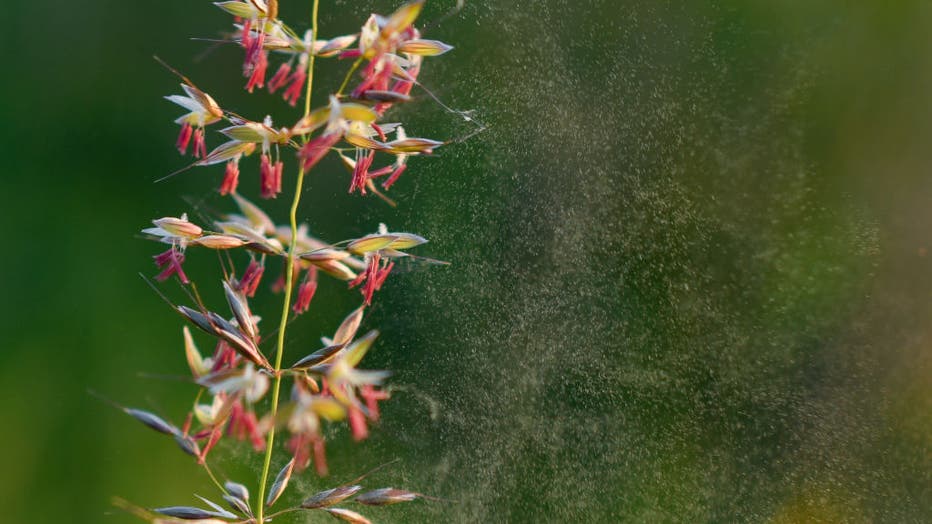Seasonal allergies? This is not going to be your year, Accuweather warns
LOS ANGELES - If you suffer from seasonal allergies, brace yourself: The 2020 allergy season is going to be a doozy.
According to Accuweather's 2020 spring allergy season forecast, above-average pollen levels on the East Coast will have those with sensitivities reaching for the tissues.
“Grass pollen sufferers will face a long and severe season into summer,” AccuWeather Senior Meteorologist Alan Reppert said.
But it won't just be the East Coast. According to Accuweather, a "huge portion of the country," spanning from Texas to Michigan, will feel the impact of the heavy pollen.
“With above-normal rainfall and near-average temperatures for much of spring, we will have plenty of tree growth in the Southeast and even pushing into the southern Plains and mid-Atlantic,” Reppert said.
“This will bring a severe tree pollen season to much of the East and the Gulf coastline,” he said.

FILE - Pollen dissolves from grass along a path. (Photo by Patrick Pleul/picture alliance via Getty Images)
If you typically use a surgical-style face mask to combat the effects of pollen on your sinuses, chances are you might not be able to get one during the height of the spring allergy season. They're in short supply due to the now-global outbreak of the novel coronavirus, called COVID-19.
RELATED: Coronavirus outbreak fear sparks global rush to buy face masks
The shortages are being attributed not just to high demand, but to disruptions in supply: An outsize share of the world’s surgical masks are made in China — 50%, by its own estimate. But even factories there that have ramped up production say they are hard pressed to meet local demand. The government has taken over manufacturers, and exports have plunged.
In the U.S., Walgreens, Home Depot, Lowe’s and True Value Hardware are reporting a sharp uptick in sales of masks over the past several weeks and say they are scrambling to get more from suppliers.
The virus has sickened more than 83,000 people worldwide and killed more than 2,800, according to international health authorities.
In the absence of masks, the National Istitutes of Health recommends avoiding your allergy triggers. If you're allergic to grass and tree pollens, try spending more time indoors. Keep the windows closed and make use of your air conditioning in lieu of a cool breeze.
"Over-the-counter antihistamines, nasal sprays, and decongestants can often ease mild symptoms. Prescription medications and allergy shots are sometimes needed for more severe allergies. Talk with your doctor about treatment options," the NIH says.
The Associated Press contributed to this report.

